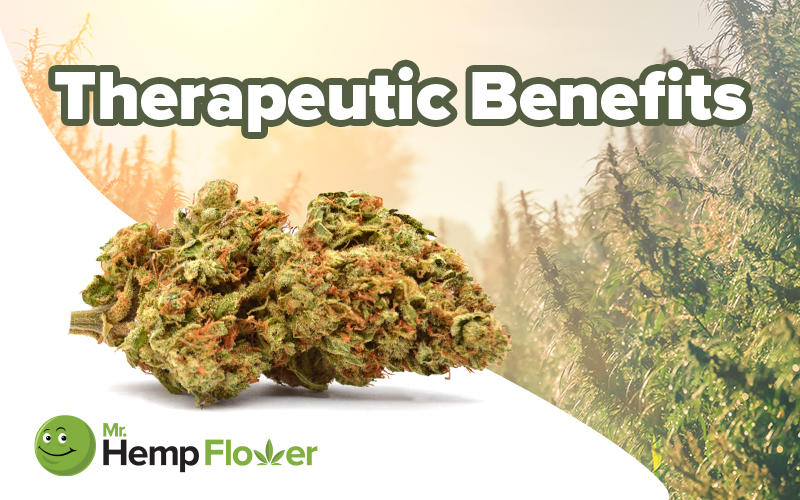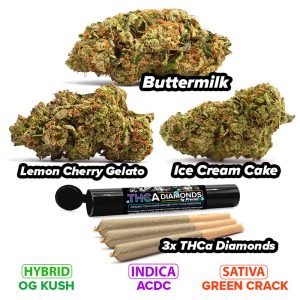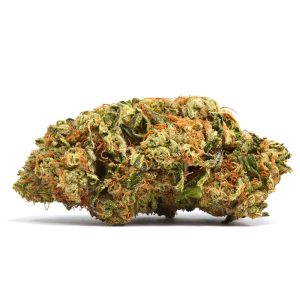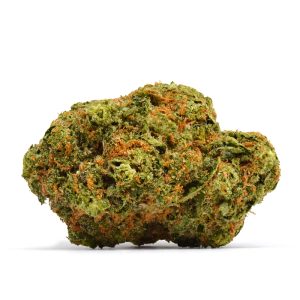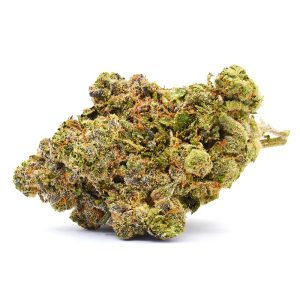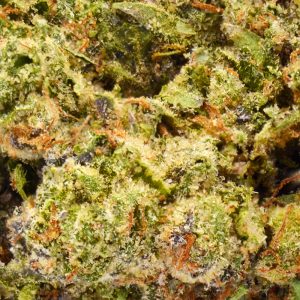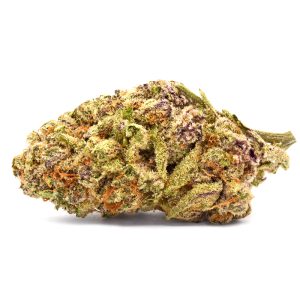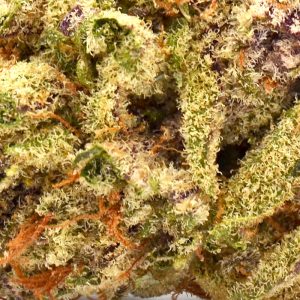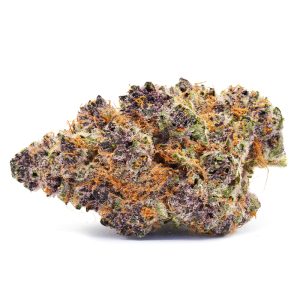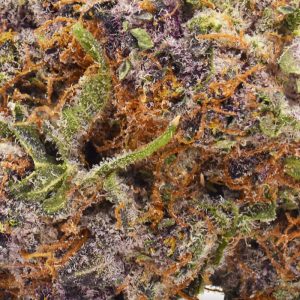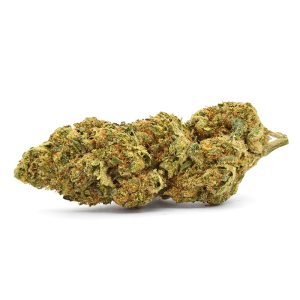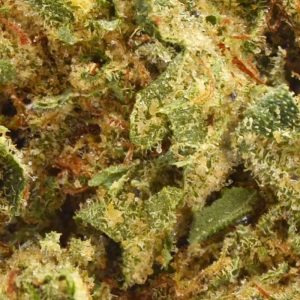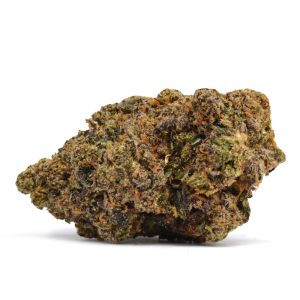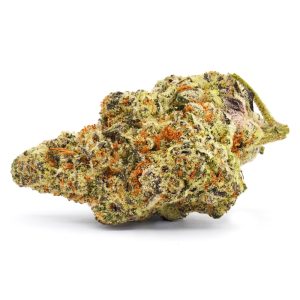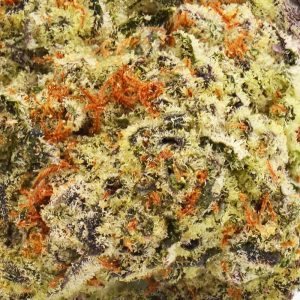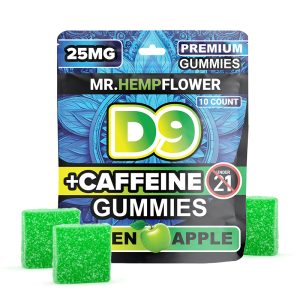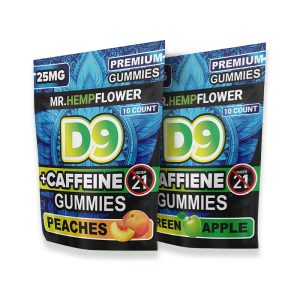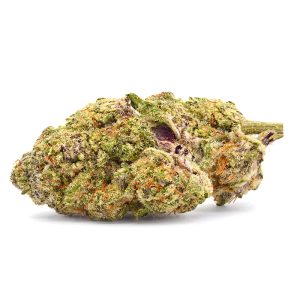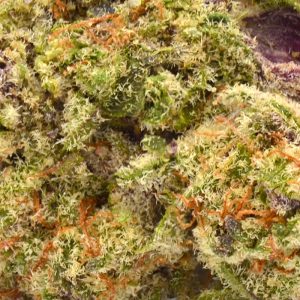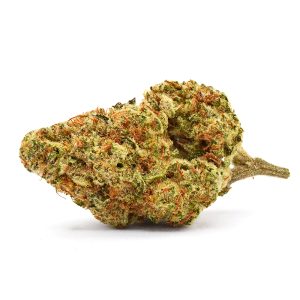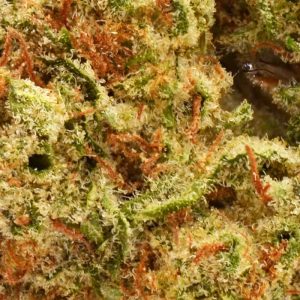People are becoming increasingly interested in the THCa benefits of the cannabis plant.
And not only because they want to get intoxicated or use it for its active cannabinoids. They are becoming increasingly interested in its raw compounds and their nutritional value. Yes, consuming raw cannabis is a thing and can, in some instances, replace medical cannabis.
THCa, the acidic form of THC, is the new cannabinoid on the block with the potential of becoming the next superfood.
Although we can’t say with great accuracy how it affects your body, early research shows that THCa will play a pivotal role in the development of future cannabis medicine.
Partly because it’s a non-psychoactive cannabinoid. And partly because it’s abundant in freshly picked, raw cannabis plants — the most nutrient-rich plants on the planet.
This article discusses the THCa benefits and side effects.
What is THCa?
THCa is THC that hasn’t been heated.
THCa, short for tetrahydrocannabinolic acid, is the precursor molecule of THC.
During its growth cycles, the hemp plant produces cannabinoid acids, fragile chemical compounds waiting to be converted into their active counterparts for the body to use.
THCa turns into THC when exposed to heat, which is also known as the process of decarboxylation. Over time, THC degrades into cannabinol (CBN).
The decarboxylation process removes the carboxylic acid ring from THCa and converts it into the THC cannabinoid. THC and THCa exhibit extremely different effects on the body.
Tetrahydrocannabinolic acid is a non-psychoactive compound synthesized and accumulated in the glandular trichomes on flowers and leaves. It’s abundant in raw cannabis flower and can represent up to 90% of the total THC in the plant. This compound is believed to protect the cannabis plant from predators [1].
Does THCa Have Any Effects?
It’s known that cannabinoid acids are biologically inactive. They are fragile molecules that break down into their active counterparts when exposed to outside influences (heat, oxygen, light).
As such, cannabinoid acids like THCa don’t bind to endocannabinoid receptors the way cannabinoids like THC and CBD do. So one of the main concerns users have about THCa is whether it is potent enough to cause therapeutic changes in the body.
THCa and the Endocannabinoid System
Research shows that because THCa is a larger molecule (carries an extra carboxylic group), it doesn’t effectively bind to the primary cannabinoid receptors CB1 and CB2.
In addition, some evidence shows that THCa has some subtle effect on these receptors, but the exact mechanism of action is unknown [2].
Not much is known about the workings of THCa and the endocannabinoid system. While it’s clear that this compound doesn’t influence the ECS the way active phytocannabinoids do, it is believed that THCa targets receptors in the body.
This cannabinoid is known for its anti-inflammatory and neuroprotective properties, believed to stem from its activation of the TRPA1 receptor. It is believed that it also targets the TRPM8 receptors.
Here’s a closer look at the activity of THCa in the body.
THCa Benefits and Therapeutic Effects
This compound is a potent anti-nausea and anti-vomiting agent that can be used in several situations, including chemo-induced nausea. For some medical conditions, physicians blend several cannabinoids with terpenes because that tends to produce better results.
Research also shows a positive correlation between THCa and neuroprotection, pain, and inflammation.
Here’s more about the THCa benefits of this cannabinoid, backed by research studies.
Neuroprotective (Brain Protective)
A compound is considered neuroprotective when it has the ability to prevent the death of neuronal cells. Several neuroinflammatory diseases, including Alzheimer’s, Parkinson’s, and Huntington’s, are characterized by impaired or dead nerve cells in several areas of the brain.
THCa has been studied for its neuroprotective effects on the brain of mice — and has shown promising results.
- A 2017 study showed that THCa might have neuroprotective properties in mice. Researchers injected toxins in mice and found that THCa prevented the degeneration of certain brain regions [3].
- In another study, rats were injected with a neurotoxin known to cause irreversible Parkinson’s. The researchers investigated the neuroprotective activity of THCa and THC and discovered that both cannabinoids protected neurons against neurotoxin-induced cell death [4].
These research studies are done on animals, which means more research on humans is needed. We don’t know how THCa will react in patients with these conditions and whether it will work in isolation or in combination with other cannabinoids.
Anti-Nausea Properties
Early animal research suggests that THCa may exhibit anti-nausea and anti-vomiting effects, which is the norm with cannabinoids.
According to a 2013 study, THCa reduced nausea and vomiting in mice injected with lithium chloride (LiCl) — a substance that triggers nausea and vomiting. Although the results of this study were promising, there’s still a need for future studies on human subjects [5].
Anti-Inflammatory Properties
THCa is another cannabinoid with anti-inflammatory properties, alongside THC and CBD. According to researchers, THCa could be more efficient for gut inflammation and pain relief for Inflammatory Bowel Diseases (IBDs) than cannabidiol (CBD) [6].
Another 2011 study found that THCa can inhibit the production of prostaglandins — chemical compounds that cause inflammatory reactions in the body [7].
The effects of cannabinoids are different when they work alone than together with other cannabinoids.
The “entourage effect” is a phenomenon that explains the boosted benefits of consuming cannabis extracts enriched with several cannabinoids compared to cannabinoids in isolation. In addition, they tend to balance each other’s unwanted effects, which is the case with CBD and THC.
Risks and Side Effects of THCa: Is It Really Safe?
The main consensus by people who have researched and tried this compound is that it’s relatively safe. However, more research is needed on how exactly it affects the body, so we can’t guarantee a specific experience.
A modest amount of research shows that this cannabinoid has no potential for addiction because it’s not psychoactive. With that said, if you go overboard, you will likely have an unpleasant experience. Anecdotal evidence shows that people who consume raw cannabis rich in THCa tolerate the compound really well.
Consuming large doses of a THCa product that has slowly decarbed into THC is perhaps the main safety concern about this compound. THC produces intoxicating effects and can cause severe adverse effects to a new user who has a low tolerance.
Possible Side Effects and Interactions
The side effects of THCa are similar to CBD’s and include the following:
- Dry mouth
- Fatigue
- Dizziness
- Restlessness
- Anxiety
- Diarrhea
Users report contradicting side effects after consuming THCa — some feel fatigued, while others feel anxious. Many times, the product is blended with other cannabinoids, which can contribute to the adverse effects the user experiences.
THCa is considered safe for consumption because it doesn’t get the user intoxicated. If you get the psychoactive effect from THCa, or you experience paranoia and hallucinations, that’s probably coming from delta 9 THC.
To preserve the THCa product from converting into THC, store it in a dark, cool place. Be careful with the dosage — only because THCa won’t get you high doesn’t mean you should take excessive amounts.
Have You Tried THCa by Mr. Hemp Flower Yet?
If you haven’t, you’re missing out on our new THCa hemp flower line.
We offer organically grown THCa hemp flower with unmatched quality. Our sativa, indica, and hybrid strains are suitable for much-needed rest and relaxation at the end of the day and an energetic “pick me up” when you need it.
If you are just starting out on your THCa journey, we recommend you experience the entourage effect with our Hybrid THCa Flower Pre-Rolls (16-20% total THC).
Coming at 17% total THC, our Sativa THCa Pre-Rolls bring you the original uplifting sativa effect. These pre-rolls create a powerful psychoactive impact when the THCa converts into THC.
For evening use, consider our Indica THCa Pre-Rolls, which bring comfort and strong relaxing properties. If you need help purchasing THCa hemp flower, don’t hesitate to contact us.
FAQs on Therapeutic Benefits of THCa
Is THCa therapeutic?
THCa exhibits potential therapeutic benefits, according to early research. This compound has shown positive benefits for a number of symptoms and conditions, including pain, nausea, and seizures.
What are the benefits of THCa and CBDa?
The main potential benefit these two cannabinoid acids share is their anti-inflammatory effects. Like other cannabinoids, THCa and CBDa also exhibit antiemetic properties.
Does THCa have psychoactive properties?
Unlike THC, THCa doesn’t elicit psychoactive effects. Because of its non-psychoactive nature, THCa’s therapeutic value and activity in the body are often neglected.
Is THCa neuroprotective?
Studies that investigated THCa’s potential neuroprotective activity show a positive correlation. This means that the compound shows potential for the treatment of neuroinflammatory conditions.

